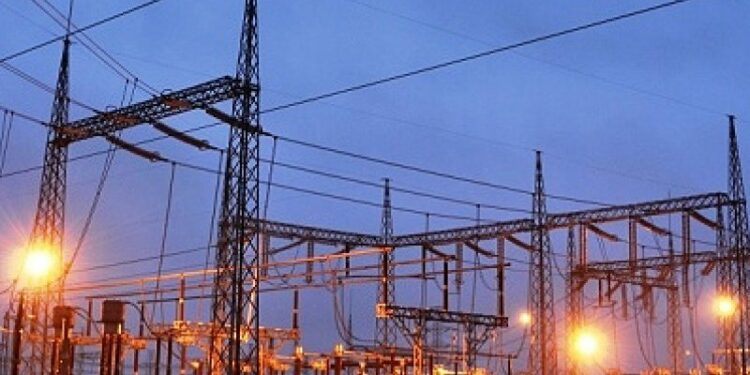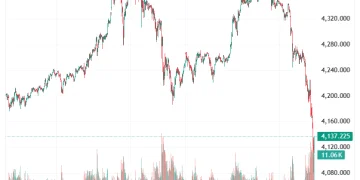After Years of Blackouts, South Africa is Suddenly Keeping the Lights On
Aslina Wines, an independent winemaker located among the rolling vineyards of Stellenbosch, counts a large generator among its most valuable inventory. It relied on the machine to stay up and running during the worst of South Africa’s power cuts, which affected the country 332 days last year.
The vintner was lucky. As the blackouts grew increasingly severe, suppliers without generators “took a hard knock,” said Bradwin Persent, Aslina’s operations and logistics coordinator, as did many of the country’s struggling small businesses.
Then, in March, the outages suddenly stopped. Even as the southern hemisphere descended into winter, when electric heaters and early sunsets drive up demand, Eskom, the troubled state-owned utility that generates most of South Africa’s energy, managed to keep the lights on.
It’s now been seven months and counting since the country’s last blackout. Persent is pleased with the streak, but has no plans to get rid of the generator. “We’re happy,” he said, “but we’re not relaxed.”
For years, chronic power outages have hobbled South Africa. First implemented in 2008, they cost the economy up to 899 million rand ($52 million) per day, according to central bank estimates, and were a big reason why the ruling African National Congress lost its majority in elections last June.
Attempts to fix the corruption-gutted utility have failed over the years — a sweeping privatization plan collapsed; an effort to add generation capacity dragged out and never fully materialized. And inside power stations, theft and sabotage became more audacious.
Now, the situation appears to be stabilizing. The effects of recent and longstanding reforms have radically improved employee morale, according to experts, analysts and officials, which has made all the difference in helping Eskom get back on its feet. The decision to delay the retirement of three coal-fired power plants also played a big role.
That move “brought confidence,” said Malekutu Bizzah Motubatse, chairperson for the National Union of Mineworkers’ Highveld region, where most of Eskom’s coal plants are located. “Government has managed to listen to us.”
Eskom’s recovery started to draw attention in March, when week after week passed without blackouts. That happened to be when Dan Marokane took over as the company’s new chief executive. He drew support from labor early on by calling to fix broken power stations and revamp the company’s management structure — a break with previous leadership, whose focus had been on the transition from coal.
At the same time, a $14 billion debt relief plan went into effect. Across the country, the proliferation of solar panels, a popular alternative to relying on Eskom, eased stress on the grid. Coal theft declined as the mineral’s price fell. Power plants were given permission to send parts back to their original manufacturers for repairs, resulting in more reliable operations.
Efforts to clamp down on crime also paid off. While the government of former President Jacob Zuma plundered the utility’s bank accounts, small-scale sabotage and theft grew rampant at power stations. Contractors were known to steal and resell parts multiple times, and thieves would replace entire truckloads of coal with rocks.
Yet between April and August of this year, a joint effort between the police, national prosecutor’s office, revenue service and a special investigating unit reduced crime by 28% compared to the same period a year prior.
The efforts of law enforcement and the courts have produced “phenomenal” results, said Lumkile Mondi, an economist at the University of the Witwatersrand, who has written extensively on Eskom.
Fragile Recovery
It’s been a long time since Eskom employees had reason for optimism. Not only was the company publicly villainized every time the lights went out, but workers were also expected to function under nearly impossible circumstances. Stations conducting major repairs had parts held up in convoluted processes, performance-related bonuses were suspended for years, and intimidation linked to corruption was common.
During a tour of Eskom’s power stations last year amid record power outages, Electricity Minister Kgosientsho Ramokgopa recognized that employees were simply not being valued. “Before you could get to the engineering questions you could see that there are issues of culture there, how people are beaten down and just essentially told they’re incapable,” he recalled during a briefing in Cape Town.
A group of German consultants brought in by the government to assess the situation came to the same conclusion. “The current crisis can only be overcome in the power plants,” the vgbe energy e.V.-led report stated, describing stations manned by unmotivated workers and training programs that were forgotten or neglected.
With working conditions improved and the blackouts at least paused, South Africa’s economy is projected to grow more than 1% this year, which could help reduce the country’s 33.5% unemployment rate — among the worst globally. It could also help boost the coalition government that took power this summer after the African National Congress lost its majority.
Analysts have had mixed reactions to the utility’s recovery. Eskom’s performance “has exceeded our expectations,” Raine Adams, an analyst at fund manager Allan Gray, wrote in comments to Bloomberg. Chiedza Madzima, head of operational risk research for BMI-Fitch Solutions, described the company as “painting a bright picture for now.”
But, she caveated, the utility isn’t expected to return to pre-pandemic production levels until 2027, and that’s only if it gets robust support from Transnet, a state logistics firm struggling with its own financial and operational problems, and if it manages to lay 14,000 kilometers of transmission line, a prospect she described as “very improbable.”
Despite the challenges, Marokane, the new CEO, is looking beyond damage control and towards expansion. Eskom is currently searching for an executive to head its new clean energy division, and the utility anticipates bringing another 2,500 megawatts online by March, Marokane said, the equivalent of one small- to-medium-sized power station.
In the best-case scenario, this could create a virtuous cycle. Yvonne Mhango, Bloomberg Economics’ Africa economist, noted that an Eskom recovery would help boost the expansion of energy-intensive, job-creating sectors like manufacturing in South Africa.
For now, employees are hopeful, said Motubatse, the union leader. Getting through winter without power cuts for the first time in five years was a triumph, he said, and one that underscored the importance of the coal stations. Stating his group’s “full confidence” in Eskom’s board and CEO, he struck a note of optimism. “We believe that these are the glory days for Eskom.”








